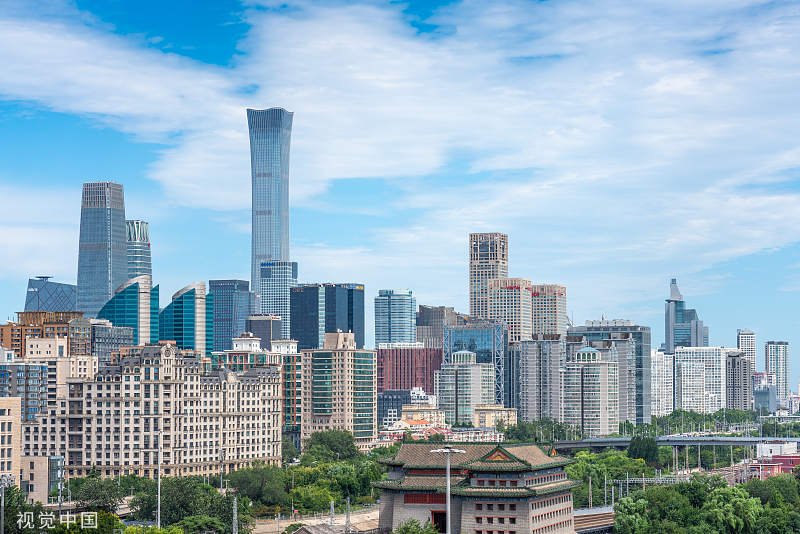Rapid growth of country not fortuitous
By Ho Lok-Sang | China Daily Global | Updated: 2023-11-29 11:00

Recently, I came across an article written by Ruchir Sharma, chairman of Rockefeller International, who wrote that the Chinese economy's decadeslong growth had come to an end. After a fall in the share of global GDP in 2022 because of COVID-19-related shutdowns, he expects China's share will continue to slip in 2023 and beyond.
Interestingly, China Daily published another article around that time with the headline "President: 'Next China' is still China".Yes, China's path of development since its opening-up will definitely continue.
I don't worry about China's share slipping, but I do worry, with all the talk and action over "de-risking", that world development is slipping. "World development" in this context is not just about economic growth. In the 21st century, we have much higher expectations. Since we have advanced so much in science and technological development, we should be able to play more constructive roles to bring planet Earth back to health.
Humanity went through two world wars and much human suffering, so many thought the new international order with the United Nations, the International Monetary Fund and the World Bank would be able to bring world peace. Yet wars have continued. Human development seems to be stuck.
I recall that during the 1980s and '90s, many Western observers, including academics who were supposed to know better, would not believe China's economic growth statistics, saying that they were routinely exaggerated by officials. At that time, the high growth rates were actually accurate. China was enjoying the benefit of being accepted into the global community and the benefit of starting from a low base.
China often ran trade deficits during the 1980s (seven out of the 11 years from 1979 to 1989 recorded deficits) because the country was short of capital and the inflow of foreign capital helped lift the nation's production capacity. The trade deficits were due to the importation of many capital goods.
After China's accession to the World Trade Organization in 2001, it quickly became the "factory of the world". Today, the nation dominates the world in manufacturing, not through exploitation or unfair trade practices, but because its products are affordable and of good quality, and because its entrepreneurs are innovative and often design products that meet the needs of consumers.
China does not seek to have trade surpluses. Its trade surplus since accession to the WTO averaged 3.2 percent of its GDP, though in the 10 years to 2022, the trade surplus fell to under 2.2 percent of GDP. Since 2018, the nation has hosted the China International Import Expo and looks forward to importing more from all countries.
China's lower growth rates in recent years were in part a result of a shift of emphasis from quantity of growth to quality of growth. China now has much cleaner air in all of its cities and much cleaner water in its lakes and rivers. It has more Tibetan antelopes and more Amur tigers than 10 years ago, and has converted desert land into greenery and raised ocean fish in the desert. Sustainable development, not rapid growth, is on the country's agenda.
China's share in global GDP could fall a bit, but it has avoided negative growth, year in and year out, for decades. The focus, as before, is always on procuring "a good life" for everybody in China. This focus has never changed. But China is always searching for better governance, more effective management, greater happiness and a safer living environment. From the Belt and Road Initiative to the Global Civilization Initiative, China is the same China, bent on food security, peace and stronger ties with all countries.
China believes that all under heaven are one family, and all under heaven should work for the common good. This is an ancient teaching from the time of Confucius.
The country's rapid growth in the past four decades is not fortuitous, but was achieved with much effort and sacrifice. Without unity of hearts and minds, without hard work, without innovation and an open, pragmatic mindset, and in particular without peace and independence, China's rapid growth would have been impossible. Moreover, Chinese believe that all nations should treat one another as equals.
It is because of these beliefs and a strong vision for a better tomorrow, backed by strong leadership and a hardworking citizenry, that China has gradually achieved its dreams. As long as these continue, there is no reason that China will not cross the "middle-income trap".
Shortly after President Xi Jinping began his second term, Evan Medeiros, a former senior director for Asia on the United States National Security Council who served in then-US president Barack Obama's administration, said that China "was running out of time" to avoid being stuck in the middle-income trap. He cited China's retaining control of the capital account, in an attempt to prove his position that Xi was not a market reformer.
But Medeiros should know that capital control has served China well, and it had contributed to the region's economic stability during the Asian financial crisis. He should also know that since China's first free trade zone was set up in 2013, in Shanghai, it now has 21 such free trade zones.
The author is director of the Pan Sutong Shanghai-Hong Kong Economic Policy Research Institute at Lingnan University.
























